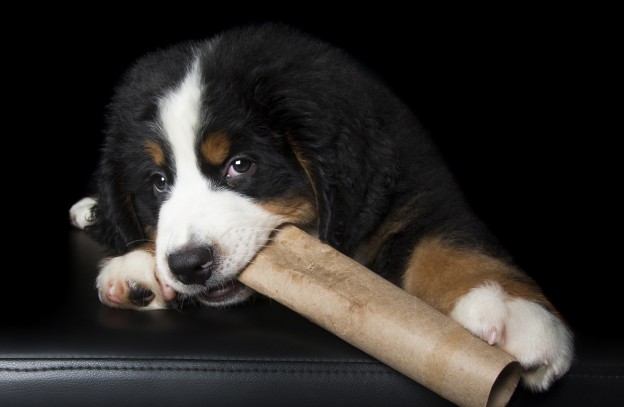
Kylie Baracz heads inside canine mouths to find out how you can solve your furry friend’s doggy dental dilemmas.
Adequate dental care can add up to four years to your dog’s life. So it is no wonder that veterinarians around the country want to ensure your pet has a sparkling set of healthy teeth and gums.
Similar to the effects in humans, dental disease has been associated with heart, liver and kidney disease in pets, meaning it can become far more serious if left untreated.
“It’s important to consider your pet’s teeth just as you would your own. Our pets are leading longer and healthier lives and their teeth have to be with them for a lot longer than they used to,” says Dr Zoe Sullivan, Vet Director for Greencross Vets in Point Cook, Victoria.
After treating pets with dental disease, vets tend to notice their new lease on life and their improved demeanour, so they educate pet owners on how to manage at-home dental hygiene to prevent re-occurrence.
“A huge proportion of pets have dental disease and, without proper dental care, it is a progressive disease. It’s also important to treat early because it can lead to heart and kidney disease,” says Dr Sullivan.
Signs and symptoms
Dr Sullivan says there are a few signs and symptoms to keep an eye out for.
“Bad breath, drooling, delay before eating, a head tilt while eating, dropping food, ‘lip-smacking’ after eating, weight loss and gum bleeding are some of the key indicators your dog needs a trip to the dentist.”
In addition to these, the signs of dental disease can include:
- Discoloured teeth
- Loose teeth
- Excessive drooling
- Blood-stained inflamed gums
- Chattering teeth
- Difficulty chewing food
“If a dental issue goes unaddressed, pet owners will notice the gum recedes and the tooth root is exposed. This causes further decay and the infection spreads into the bone in the jaw. A bone infection in the face is extremely painful,” says Dr Sullivan. “Untreated dental issues can also lead to cardiac issues and kidney disease, so it’s very important to take prevention seriously.”
Prevention
Dental health care should start right from the beginning. Dr Sullivan recommends getting your puppy used to having its teeth checked and brushed from an early age.
To ensure prevention starts at home, vets encourage owners to brush their pets’ teeth regularly to prevent tartar build-up and periodontal disease.
“It’s important to brush your dog’s teeth with an appropriate sized toothbrush; use a toddler’s toothbrush on a small dog for example. Don’t use human toothpaste on pets as it is toxic to them. You can use finger thimbles to clean teeth and clear out any plaque instead,” recommends Dr Sullivan.
Other methods include providing raw meaty bones or large hard products such as pig’s ears, noses or trotters and Dentabones for chewing. Just be careful that the product isn’t too hard as it may break teeth. The chewing action provides a gum massage through the physical rubbing and helps aid the removal of plaque.
There are dental treats that have been clinically studied and proven to provide approximately a 25 per cent improvement in teeth, so ask your vet which products are appropriate for your dog.
“General monitoring and awareness is important. Check their teeth and smell their breath regularly. Regular dental checks are also very important so remember to visit the vet twice a year much like we do. Prevention is the best cure!” says Dr Sullivan.
New dental care technology
There are now liquids available that contain an enzyme allowing you to add it your dog’s water bowl or flush its teeth with it to break down tartar. ‘Plaque-off’ is an example.
“Please consult your vet to ensure these treatments are suitable for your pet. Vet clinics also do routine dental X-rays, and treatment can involve physical removal. Hard food, brushing and a dental de-scale and polish procedure at the dental clinic are the best treatments. A de-scale and polish removes plaque from every surface of every tooth resulting in an instantaneously clean dental arcade,” explains Dr Sullivan.
Image Credit: Houndstooth Studio
You need to look after your pooch's health - check out our all-new DOGSLife Directory



